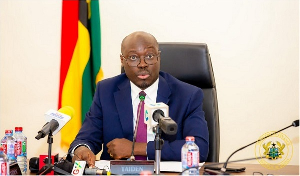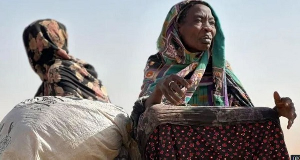Mary Adabre, a 16- year-old girl from Pwalugu in the Upper East Region got pregnant when she was in junior high school form one, by a boy in her class.
Mary who had aspired to be a nurse in future now depends on her single mother with her one year, three months old baby, whose equally young father left the village and had not returned. The boy could neither marry her nor take care of the baby.
Mary’s reason for engaging in pre-marital sex, which resulted in pregnancy, was that her boyfriend used to bring food from home for the two to eat in school.
Mary’s story came to light at a Single Women Conference in Kumasi in the Ashanti Region, where 20-year-old Grace Adedima narrated to the Ghana News Agency, how she lost her 23- year old husband when she was three months pregnant.
A GNA Feature by Fatima Astanga
Due to poor care, she left for Kumasi with her 10 months old baby and ended up in Obuasi, a mining town.
Grace said caring for a child goes beyond the changing of diapers and feeding him or her, because the single mother must fend for herself as well.
The conference created the platform for a number of single mothers to narrate their pathetic stories of stigmatisation from prying people who wants to know the father of their children and other inquisitive objectives.
Ms Dorcas Akonga, Director of Teen Mothers in Ghana, a non-governmental organisation, attributed teenage pregnancy to cultural practices and high cost of dowry, which bars young men from marriage.
A newspaper report revealed in February that out of the 222,405 births recorded from January to September nationwide, last year, mothers under the age of 15 were responsible for 2,813, representing 91 per cent of the total births.
Some cultural practices and norms put females in disadvantaged positions in terms of their relative power and control over their reproductive lives and material resources. They are also faced with the worst form of insecurity, especially after the death of their husbands.
They are also disadvantaged in regard to the education and health of their children.
It has become necessary therefore as a society to be responsibility for ensuring that girls are inspired to achieve their aspirations and also to reduce their alarming rate of school dropout.
There is therefore the need for Ghana to reverse the situation by encouraging women in responsible positions to serve as role models to shape the future of these girls, as a social scientist noted: “Much of learning that occurs during development is acquired through observation and imitation.”
Role models should be inspired by the marvellous worth of information, communication and technology to keep on updating children and to be able to monitor their performance.
Ghana needs role models who would take a girl from the street and nurture her to become a responsible person in future.
Promulgation of policies to empower the youth should create room for evaluation to ensure their sustainable development.
President John Evans Atta Mills said in an address to an audience at a recent end of year party that the progress of every nation is its human resource and children are its vibrant source, therefore society owed its children the responsibility of protection and development as well as allowing them to participate in national progress.
Opinions of Sunday, 4 March 2012
Columnist: GNA














